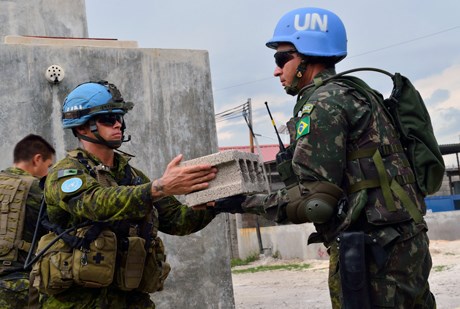Dear Editor,
The Middle East has been a ticking time bomb for almost 70 years.
It reminds me of a great Canadian Prime Minister, Lester (Mike) Pearson, who helped diffuse a potentially explosive situation in this area in the 1950s over the Suez Canal, a lifeline of the region.
Pearson, who served as Canada’s Prime Minister from April 22, 1963 to April 20, 1968, was a very skilled diplomat and statesman.
He was made a Nobel Laureate in 1957 as a result his role in averting a major clash between superpowers over the Suez Canal navigation question.
Despite his minority government, Pearson made very commendable fundamental changes during his regime.
These included universal health care, Canada Pension Plan, race-free immigration and the Canadian flag.
He was a very down to earth and modest leader. I had the privilege of meeting Mr. Pearson in 1967 on one of his official visits to Vancouver and was very impressed with his dedication to Canada and world peace.
Pearson’s ground-breaking work at the United Nations and in international diplomacy made him as one of the most admired and influential Canadians of the 20th century.
Unfortunately, during the past few years, this country has drifted from this policy. The current crisis in the Middle East and hundreds of thousands of refugees running to Europe for their lives needs world leaders such as Mike Pearson to take the lead in stopping this human misery on an unprecedented scale.
To its credit, Canada has agreed to open its doors to more refugees than announced earlier.
All of this is a positive development. Unfortunately, the root cause of this problem is still there.
ISIL is still waging its ruthless campaign of killing and displacing thousands of innocent people.
In order to tackle this issue, the entire world community needs to come together and strike a deadly blow at the ISIL.
With a concerted international effort, this crisis should also blow over, eventually.
In the meantime, whichever party gets the opportunity to form the next government on Oct. 19, needs to seriously revisit our foreign policy.
We must recognize that, in military terms, Canada is not even a middle power.
In order to regain its lost respect and prestige on the international stage, getting back to our earlier policy of taking an active role of a peacekeeper and peacemaker may be worth consideration.
Balwant Sanghera
Richmond



